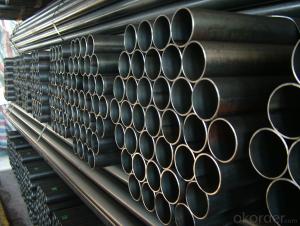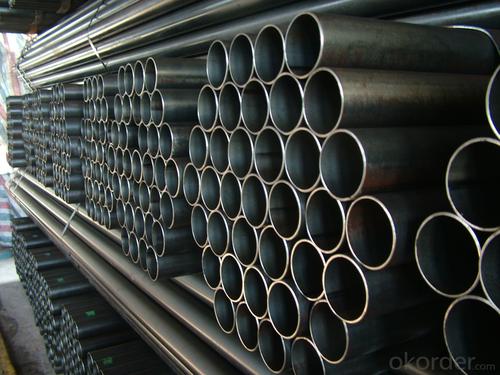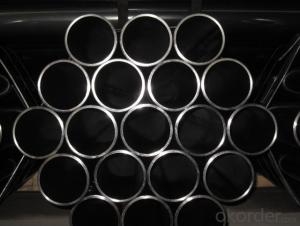Drive shaft pipes for automobile industry
- Loading Port:
- China Main Port
- Payment Terms:
- TT OR LC
- Min Order Qty:
- -
- Supply Capability:
- -
OKorder Service Pledge
OKorder Financial Service
You Might Also Like
Specifications
1.auto seamless steel pipe
2.OD:89mm-219mm;WT:1mm-12mm
3.Grade:20# 35# 40# Q345 10# 20Cr 40Cr etc
4.fast delivery
Scope: Covers several grades of carbon and alloy steel seamless mechanical tubing. This specification covers both seamless cold-drawing mechanical tubing and seamless cold-rolling mechanical tubing.
Size Range: Covers tubes in size up to 80mm outside diameter for round tubes with wall thicknesses 1mm-14mm
Shape: The tubes shall be furnished in the following shapes, as specified by the purchaser: round, square,rectangular,hexagonal and special sections.
Marking: as per customer's requirement,your drawing or sample are welcomed.
Dimensions, Mechanical properties, Chemical compositions:
Refer to relative standard as per clients requirements
Packing :Bundles, seaworthy packing
With or without edge protector, steel hoop and seals, or as per customers' requirements
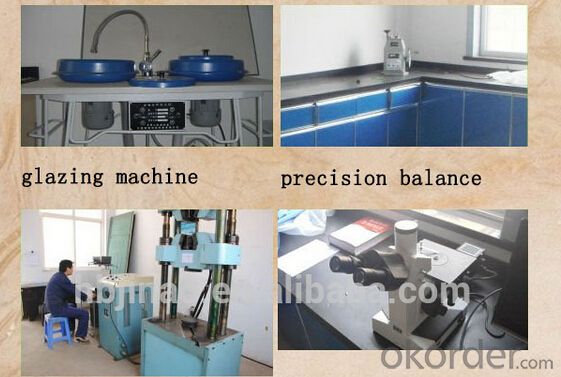
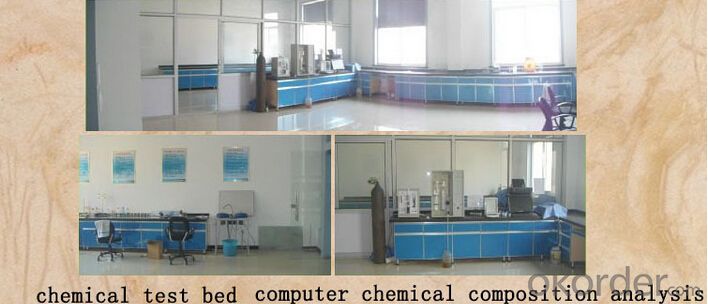
- Q: How do you calculate the pipe friction loss for steel pipes?
- To calculate the pipe friction loss for steel pipes, you need to use the Darcy-Weisbach equation. This equation is commonly used in fluid dynamics to determine the pressure drop or friction loss due to the flow of fluid through a pipe. The equation is as follows: ΔP = (f * L * ρ * V²) / (2 * D) Where: ΔP = Pressure drop or friction loss f = Darcy friction factor L = Length of the pipe ρ = Density of the fluid V = Velocity of the fluid D = Diameter of the pipe The Darcy friction factor (f) is a dimensionless value that depends on the Reynolds number (Re) and the relative roughness (ε/D) of the pipe, where ε is the absolute roughness of the pipe. To determine the friction factor, you can use various correlations or Moody's diagram. Once you have the friction factor, you can plug in the values for length, density, velocity, and diameter into the equation to calculate the pressure drop or friction loss. It is important to note that the units of all the variables should be consistent (e.g., length in meters, density in kg/m³, velocity in m/s, diameter in meters) to obtain accurate results. By using this equation and obtaining the necessary parameters, you can calculate the pipe friction loss for steel pipes, which is crucial in designing and analyzing fluid flow systems.
- Q: What are the different methods of non-destructive testing for steel pipes?
- The different methods of non-destructive testing for steel pipes include visual inspection, ultrasonic testing, magnetic particle testing, liquid penetrant testing, and radiographic testing. These methods are used to detect defects or abnormalities in the pipes without causing any damage. Visual inspection involves a thorough visual examination of the pipe's surface. Ultrasonic testing uses high-frequency sound waves to identify internal flaws or thickness measurements. Magnetic particle testing detects surface and near-surface defects by applying a magnetic field and inspecting for magnetic particles. Liquid penetrant testing involves applying a liquid dye to the surface and inspecting for any visible indications of defects. Radiographic testing uses X-rays or gamma rays to capture images that reveal internal defects or flaws in the steel pipes.
- Q: Can steel pipes be coated for aesthetic purposes?
- Yes, steel pipes can be coated for aesthetic purposes. Coating steel pipes not only adds a visually appealing finish but also provides protection against corrosion and other environmental factors. There are various coating options available for steel pipes, such as powder coating, epoxy coating, and vinyl coating, among others. These coatings can be applied in different colors and textures to enhance the appearance of the pipes and complement the surrounding environment. Whether in industrial settings, architectural projects, or decorative applications, coating steel pipes can transform them into visually appealing elements while maintaining their structural integrity.
- Q: How do steel pipes connect to other components?
- Steel pipes can be connected to other components using various methods such as welding, threading, flanges, or couplings.
- Q: What are the advantages of using steel pipes in the manufacturing industry?
- Steel pipes offer several advantages in the manufacturing industry. Firstly, steel pipes are highly durable and have a long lifespan, making them ideal for handling heavy loads and withstanding harsh conditions. Secondly, steel pipes are resistant to corrosion, rust, and chemical reactions, ensuring that the material being transported or processed remains uncontaminated. Additionally, steel pipes have high tensile strength and can withstand high pressure, making them suitable for various applications like transporting liquids, gases, and solids. Furthermore, steel pipes are versatile and can be easily customized to meet specific manufacturing requirements. Lastly, steel pipes are cost-effective due to their longevity, low maintenance needs, and recyclability, making them an economical choice for the manufacturing industry.
- Q: How are steel pipes transported?
- Steel pipes can be transported through different means depending on their size, weight, and the distance they need to cover. The primary modes of transportation for steel pipes are trucks, trains, and ships. For shorter distances, trucks are often used to transport steel pipes. The pipes are loaded onto flatbed or specialized trailers designed to securely hold and transport them. Trucks are convenient for transporting steel pipes to nearby locations or construction sites, as they can easily navigate local roads and highways. For longer distances, trains are the preferred mode of transportation. Steel pipes are loaded onto flatcars, which are specifically designed to carry heavy loads. Trains offer a cost-effective and efficient means of transporting large quantities of steel pipes over long distances. They can accommodate pipes of various lengths and diameters, making them a versatile option. When it comes to international shipments or transportation over bodies of water, ships are commonly used. Steel pipes can be loaded into shipping containers or onto the deck of cargo ships. Shipping containers provide protection from weather conditions and ensure the pipes remain secure during transit. Specialized ships equipped with cranes can handle large and heavy pipes, making the transportation of oversized steel pipes possible. In certain cases, pipelines can be constructed to transport steel pipes directly from the manufacturing facility to the desired location. This method is commonly used for oil, gas, or water pipelines. By laying the pipes underground, the need for separate transportation is eliminated. Overall, the transportation of steel pipes involves a range of methods, including trucks, trains, ships, and pipelines. The choice of method depends on factors such as distance, quantity, and project requirements. Each method offers its own advantages and is selected based on considerations such as cost, efficiency, and logistics.
- Q: What kind of argon arc welding wire is used for 16Mn steel pipe?
- 16Mn steel belongs to carbon manganese steel, the content of carbon is about 0.16%, and the yield point is equal to 343MPa (strength grade is 343MPa). 16Mn steel alloy content is less, good weldability, welding generally without preheating. But because the 16Mn steel hardened tendency is slightly larger than the low carbon steel, so at low temperatures (such as winter outdoor operations) or welding in high rigidity, large thickness of the structure, in order to prevent the cold crack, need to take measures to preheat.
- Q: How do you prevent steel pipes from freezing in cold climates?
- One way to prevent steel pipes from freezing in cold climates is by insulating them with materials such as foam insulation or heat tape. This helps to maintain the temperature of the pipes and prevents them from freezing. Additionally, ensuring that all cracks or openings in the walls or foundation where the pipes are located are sealed can also help in preventing the pipes from freezing.
- Q: Can steel pipes be used for water treatment plants?
- Yes, steel pipes can be used for water treatment plants. Steel pipes are widely used in water treatment plants due to their high durability, strength, and resistance to corrosion. They can effectively handle the high pressure and flow requirements of water treatment processes. Additionally, steel pipes can be easily welded and joined, making them suitable for various applications within water treatment plants, such as transporting raw water, treating chemicals, and distributing treated water.
- Q: There are multiple welded galvanized steel pipe outer diameter 108mm wall thickness 4mm length of 6 meters
- Galvanized steel pipe wall thickness weight outer diameter 108mm 4mm 6 meters in length is about 10.26*6*1.06=65 kg.Kg/m= (outside diameter mm-, wall thickness mm) * wall thickness mm*0.02466= (108-4) *4*0.02466=10.26 kg / MBecause of galvanizing, the weight is heavier than that of ordinary welded pipe 3%~6%.
Send your message to us
Drive shaft pipes for automobile industry
- Loading Port:
- China Main Port
- Payment Terms:
- TT OR LC
- Min Order Qty:
- -
- Supply Capability:
- -
OKorder Service Pledge
OKorder Financial Service
Similar products
Hot products
Hot Searches
Related keywords
